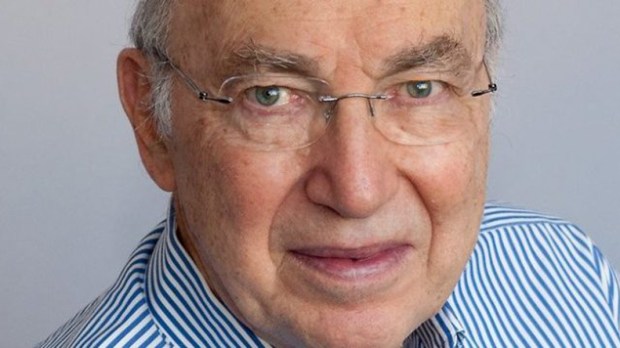He had no formal training in archaeology or Scripture studies, but Hershel Shanks did more than many of those in the field to stimulate interest in biblical archaeology. A New York Times book review once called him “probably the world’s most influential amateur biblical archeologist.”
Shanks, founder and longtime editor of Biblical Archaeology Review, died February 5 at the age of 90.
“With his popular bi-monthly magazine, Shanks trumpeted the latest discoveries at digs across the Holy Land, promoted (and sometimes prompted) fierce archaeological controversies, and tirelessly advocated for public access to the latest scholarship,” Christianity Today reported.
Born into a Jewish family in Sharon, Pennsylvania, on March 8, 1930, Shanks graduated from Haverford College with a bachelor’s degree in English, Columbia University with an M.A. in sociology, and Harvard Law School.
According to the Jewish Virtual Library, he then joined the U.S. Justice Department, where he handled cases in the United States Courts of Appeals and the Supreme Court. He went on to practice law privately in Washington for more than 25 years. He wrote widely in legal journals and published a book, The Art and Craft of Judging: The Opinions of Judge Learned Hand.
While living in Jerusalem in 1972–73, he published another book, The City of David: A Guide to Biblical Jerusalem.Upon his return to the United States, while continuing to practice law, Shanks founded Biblical Archaeology Review (BAR), which began as a 16-page pamphlet written entirely by himself, the Jewish Virtual Library recounted. The magazine’s readership reached over a quarter of a million in the early 2000s. The JVL said:
Almost all major scholars in Bible and archaeology have published articles in BAR, in which they often explore fresh perspectives for a non-scholarly audience. BAR is known especially for exploring controversies in the world of biblical archaeology, with the editor often taking his own strong stand.
Greater accessibility
Shanks not only wanted to make archaeological discoveries more accessible to the lay public; he also found ways to get otherwise reluctant scholars to share those discoveries outside of academic circles. One of those attempts, however, was a rocky road.
“His biggest contribution may have been a decades-long advocacy for public access to the Dead Sea Scrolls, considered among the 20th century’s greatest archaeological finds,” Religion News Service explained. “The scrolls, which were unearthed in 1947, became the purview of a key group of experts who controlled access to them.”
In 1991, Shanks published A Facsimile Edition of the Dead Sea Scrolls, which contained photographs of scroll fragments never before seen outside of research libraries. Dead Sea Scrolls scholar Elisha Qimron sued Shanks and others for breach of copyright and won.
Shanks founded two other magazines, Bible Review in 1985 and Archaeology Odyssey in 2000. He was the author of a number of books including Judaism in Stone: The Story of Ancient Synagogues (1979), Jerusalem: An Archaeological Biography (1995), The Mystery and Meaning of the Dead Sea Scrolls (1998), The Brother of Jesus (with Ben Witherington III, 2003), and Solomon’s Temple: Myth or Reality? A History of Jerusalem’s Temple Mount (2006). He was also the editor of two widely used textbooks: Ancient Israel: From Abraham to the Roman Destruction of the Temple (rev. ed. 1999) and Christianity and Rabbinic Judaism (1988).
According to Eric H. Cline, professor of classical and ancient Near Eastern studies at the George Washington University, Shanks had a gift for “spotting hidden nuggets within the world of arcane academic scholarship. He winnowed wheat from chaff and brought topics, ideas, and new discoveries to a much larger audience of interested readers.”
Shanks is survived by his wife, Judith, and his daughters, Elizabeth and Julia.
Read more:Holy Land archaeology on hold during pandemic
Read more:How family Bibles can be used to teach salvation history

